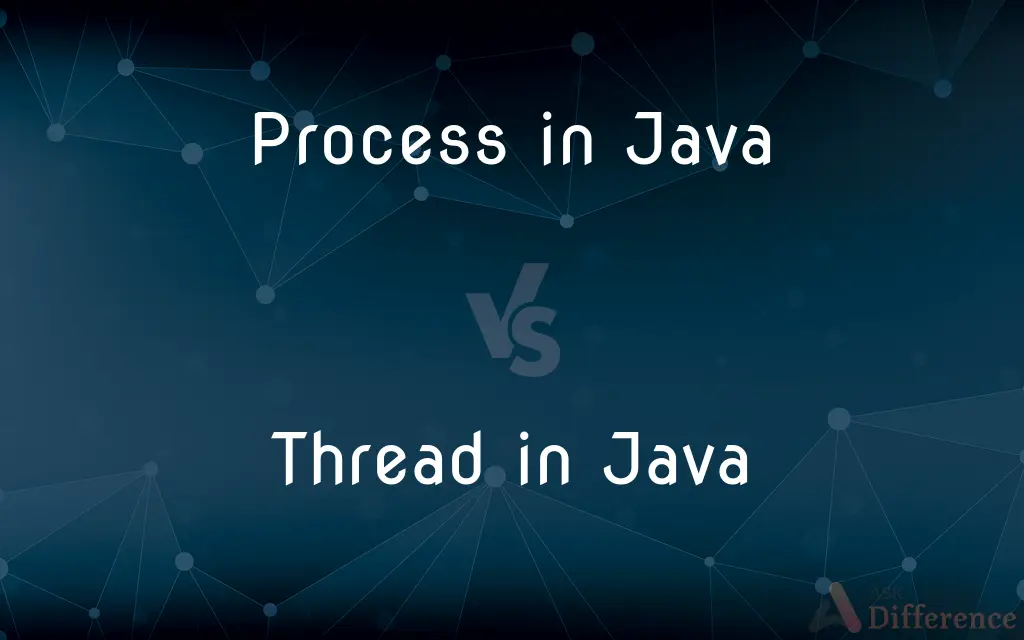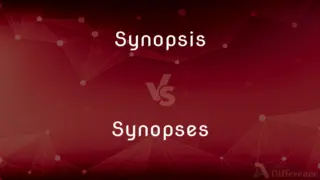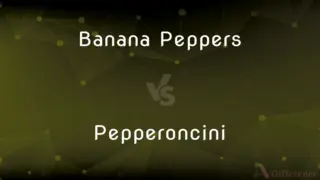Process in Java vs. Thread in Java — What's the Difference?
By Tayyaba Rehman — Published on January 9, 2024
In Java, a Process is an independent execution environment with its own memory space; a Thread is a lighter, shared-memory execution path within a process.

Difference Between Process in Java and Thread in Java
Table of Contents
ADVERTISEMENT
Key Differences
A process in Java refers to an executing instance of a Java application or any application on the operating system. It is a self-contained execution environment with its own memory space. A thread in Java is a single execution path within a process, sharing the process's resources, including memory and open files.
Processes in Java operate independently of each other, meaning they do not share memory or resources directly. This isolation provides stability since a failure in one process does not affect others. Threads within a process share the same memory and resources, making inter-thread communication more efficient but requiring careful management to avoid conflicts.
Creating a new process in Java usually involves more overhead than creating a new thread because of the need to allocate separate memory space and resources. Threads are lighter and have lower overhead since they use the existing memory space of the process.
Communication between processes in Java generally requires inter-process communication mechanisms, which can be more complex and slower than communication between threads. Threads can communicate with each other directly through shared objects and variables within the same process.
The Java Runtime Environment (JRE) manages both processes and threads. Processes are typically managed at the operating system level, whereas the JRE has more direct control over threads, providing APIs for creating, managing, and synchronizing threads within a Java application.
ADVERTISEMENT
Comparison Chart
Execution Environment
Independent, with own memory space
Shares memory space within a process
Resource Sharing
Does not share resources with other processes
Shares resources with other threads in the same process
Communication
Requires inter-process communication
Can directly share data within the process
Overhead
Higher due to separate memory allocation
Lower, uses existing process memory
Stability
Isolated, failure in one does not affect others
Less isolated, requires synchronization
Compare with Definitions
Process in Java
An independent execution environment in the OS.
Launching a new application starts a new process in Java.
Thread in Java
Requires synchronization for safe operation.
The application used synchronized blocks to manage thread access to shared data.
Process in Java
Runs with its own memory allocation.
Each Java application runs in its own process with separate heap space.
Thread in Java
Shares process memory and resources.
Threads in a Java process shared the same object instances.
Process in Java
Isolated from other processes.
A failure in one Java process does not impact other running processes.
Thread in Java
Can be created using the Thread class or implementing Runnable.
The Java program created new threads using the Thread class for multitasking.
Process in Java
Can contain multiple threads.
A Java web server process may spawn multiple threads to handle requests.
Thread in Java
A lightweight subprocess within a process.
A Java application used threads for concurrent data processing.
Process in Java
Managed at the operating system level.
Processes in Java are monitored and controlled by the OS's task manager.
Thread in Java
Managed by the Java Runtime Environment (JRE).
The JRE handled the lifecycle and scheduling of threads in the Java application.
Common Curiosities
Is creating a thread more efficient than a process in Java?
Yes, creating a thread is generally more efficient due to shared resources.
What is a process in Java?
It's an independent execution environment with its own memory space.
What is a thread in Java?
A lightweight execution path within a process, sharing the process's memory.
Can threads in Java communicate easily?
Yes, they can communicate directly as they share the same memory space.
How do processes and threads differ in memory usage?
Processes have separate memory spaces, while threads share memory within a process.
What is the risk of threads sharing memory?
The main risk is the potential for data inconsistency without proper synchronization.
Do Java threads require synchronization?
Yes, to manage shared resources and avoid conflicts.
Can a Java process contain multiple threads?
Yes, a single process can contain multiple threads.
How do you create a thread in Java?
By extending the Thread class or implementing the Runnable interface.
What is inter-process communication in Java?
It's a mechanism for processes to communicate with each other, necessary due to their isolated memory.
Can threads in Java be prioritized?
Yes, Java allows setting thread priorities for scheduling.
What happens when a Java process crashes?
It doesn't affect other processes due to memory isolation.
How are processes in Java managed?
They are managed at the operating system level.
Are threads in Java independent of each other?
They are dependent in terms of shared resources but can run independently.
Share Your Discovery

Previous Comparison
Synopsis vs. Synopses
Next Comparison
Banana Peppers vs. PepperonciniAuthor Spotlight
Written by
Tayyaba RehmanTayyaba Rehman is a distinguished writer, currently serving as a primary contributor to askdifference.com. As a researcher in semantics and etymology, Tayyaba's passion for the complexity of languages and their distinctions has found a perfect home on the platform. Tayyaba delves into the intricacies of language, distinguishing between commonly confused words and phrases, thereby providing clarity for readers worldwide.











































